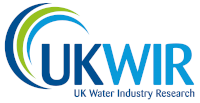Customer behaviour campaigns on blockage reduction
17/05/2024
What’s the issue?
Many blockages (around 75%) are caused by items that shouldn't be flushed or poured down drains, such as wet wipes, fats, oils, and grease. These blockages can cause inconvenience and damage to properties, not to mention the health and environmental risks from sewage backups.
To try and combat this issue, many water companies run customer behaviour campaigns aimed at reducing blockages. However, despite numerous campaigns over the years, very little insight on the effectiveness of these campaigns is shared at a national level.
A new report, ‘Learning and recommendations from customer behaviour change campaigns on blockage reduction,’ has just been published which aims to share valuable learnings from previous water sector campaigns to inform future strategies for reducing blockages based on customer behaviour.
What we did
Data was collected from within the water industry to evaluate the relative effectiveness of blockage reduction campaigns to inform future strategies, both in terms of campaign design and how to meaningfully measure and evaluate them.
What we found
The research shows that tackling sewer blockages requires a smarter, multi-pronged approach.
Tailored campaigns: While national messaging is important, individual water companies should also develop campaigns specific to their customer base and common blockage issues in their area.
Strength in numbers: A unified national campaign can amplify the impact by leveraging economies of scale and the power of repeated messaging across the country.
Collaboration is key: To maximise effectiveness, a national working group focused on changing customer behaviour regarding blockages is recommended. This group would allow water companies to share best practices and learn from each other's experiences.
The report was carried out by market and research agency BlueMarble Research Ltd and supported by Stantec. The programme lead was Nick Mills, from Southern Water and UKWIR’s project manager was Nina Jones. To find out more, visit this link.
